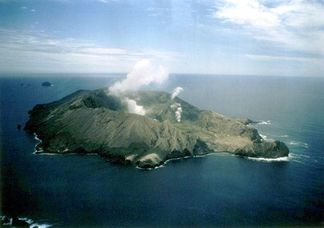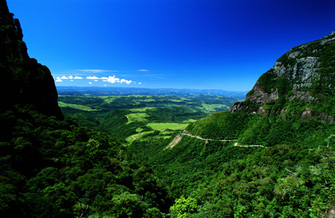Brazil vs. New Zealand!
Society's Response to Environmental Damage a.k.a.
Productive Power Punch of the People
New Zealand: 9
New
Zealand has a sensational response to its environmental problems. As
mentioned above the largest environmental problems that plague this
nation are earthquakes, volcano eruptions, deforestation, soil erosion,
and climate change.
When the 2011 Christchurch earthquake struck, New Zealanders sprung into action. Those who resided in the unaffected portion of the country provided whatever aid they could from cash donations to volunteer emergency aid workers and happily accepted the assistance of international agencies when needed. Such a reaction in itself is not unique to this nation; countless countries affected by natural disasters of this ilk have reacted similarly. However, the Kiwis are prepared to do quite a bit more. A recent survey showed the 57% of the population support the instating of a temporary "earthquake tax" that would take a percent of middle and upper class salaries to be put towards the Christchurch recovery effort. Alleviating some of the financial difficulties brought about by the damage left in the earthquake's wake.
When the 2011 Christchurch earthquake struck, New Zealanders sprung into action. Those who resided in the unaffected portion of the country provided whatever aid they could from cash donations to volunteer emergency aid workers and happily accepted the assistance of international agencies when needed. Such a reaction in itself is not unique to this nation; countless countries affected by natural disasters of this ilk have reacted similarly. However, the Kiwis are prepared to do quite a bit more. A recent survey showed the 57% of the population support the instating of a temporary "earthquake tax" that would take a percent of middle and upper class salaries to be put towards the Christchurch recovery effort. Alleviating some of the financial difficulties brought about by the damage left in the earthquake's wake.
The New Zealand government also purchased a
new and improved volcano detection system recently. As mentioned
earlier, the country has had its fair share of volcano related
unpleasantries which this new system will hopefully alleviate. The
installation of this piece equipment shows that the New Zealand people
are aware of the environmental risks of the landmass they call home and
prepared to do all they can to continue residing on it.
The last major societal response that shall be mentioned is the manner in which New Zealanders address deforestation, soil erosion, and climate change. These have problems that have affected New Zealand for countless years and the New Zealand government, at the behest of its constituents, has created several agencies tasked with addressing these problems and others that arise. These agencies are charged with ensuring the land is well managed and cared for, planting trees, continued advocacy so that this problem remains in the forefront of public awareness and debate, and so very much more. Examples of these agencies are National Institute of Water & Atmospheric Research, Ministry for the Environment, New Zealand Climate Science Coalition, Climate Change Research Center, and many more.
The last major societal response that shall be mentioned is the manner in which New Zealanders address deforestation, soil erosion, and climate change. These have problems that have affected New Zealand for countless years and the New Zealand government, at the behest of its constituents, has created several agencies tasked with addressing these problems and others that arise. These agencies are charged with ensuring the land is well managed and cared for, planting trees, continued advocacy so that this problem remains in the forefront of public awareness and debate, and so very much more. Examples of these agencies are National Institute of Water & Atmospheric Research, Ministry for the Environment, New Zealand Climate Science Coalition, Climate Change Research Center, and many more.
Brazil: 8
The reaction of the Brazilian people to their many environmental problems has been impressive. They have implemented several measures to stop deforestation as well as invested in and created agencies equipped to enforce these new rulings and new data shows it is working. Deforestation is down by 50%, on track to reach the government's goal of bringing deforestation down 80% by 2020.
Evidence of the new legislation's effectiveness showed when Brazil's largest bank, Banco do Brasil, was sued for financing deforestation. Though the trial is still ongoing, it has set forth a precedent that such activities will not be permitted in the region any longer.
Not only are Brazilians addressing the deforestation but also their pollution problem. They have set aside money to purchase a new water filtration for several of the larger cities. However, it is far from enough. The filtration system will not be installed for some time and there is little being done to address the problem's origin: the lack of a clean rivers and a national water system. But nonetheless, at least it is being discussed.
Evidence of the new legislation's effectiveness showed when Brazil's largest bank, Banco do Brasil, was sued for financing deforestation. Though the trial is still ongoing, it has set forth a precedent that such activities will not be permitted in the region any longer.
Not only are Brazilians addressing the deforestation but also their pollution problem. They have set aside money to purchase a new water filtration for several of the larger cities. However, it is far from enough. The filtration system will not be installed for some time and there is little being done to address the problem's origin: the lack of a clean rivers and a national water system. But nonetheless, at least it is being discussed.



